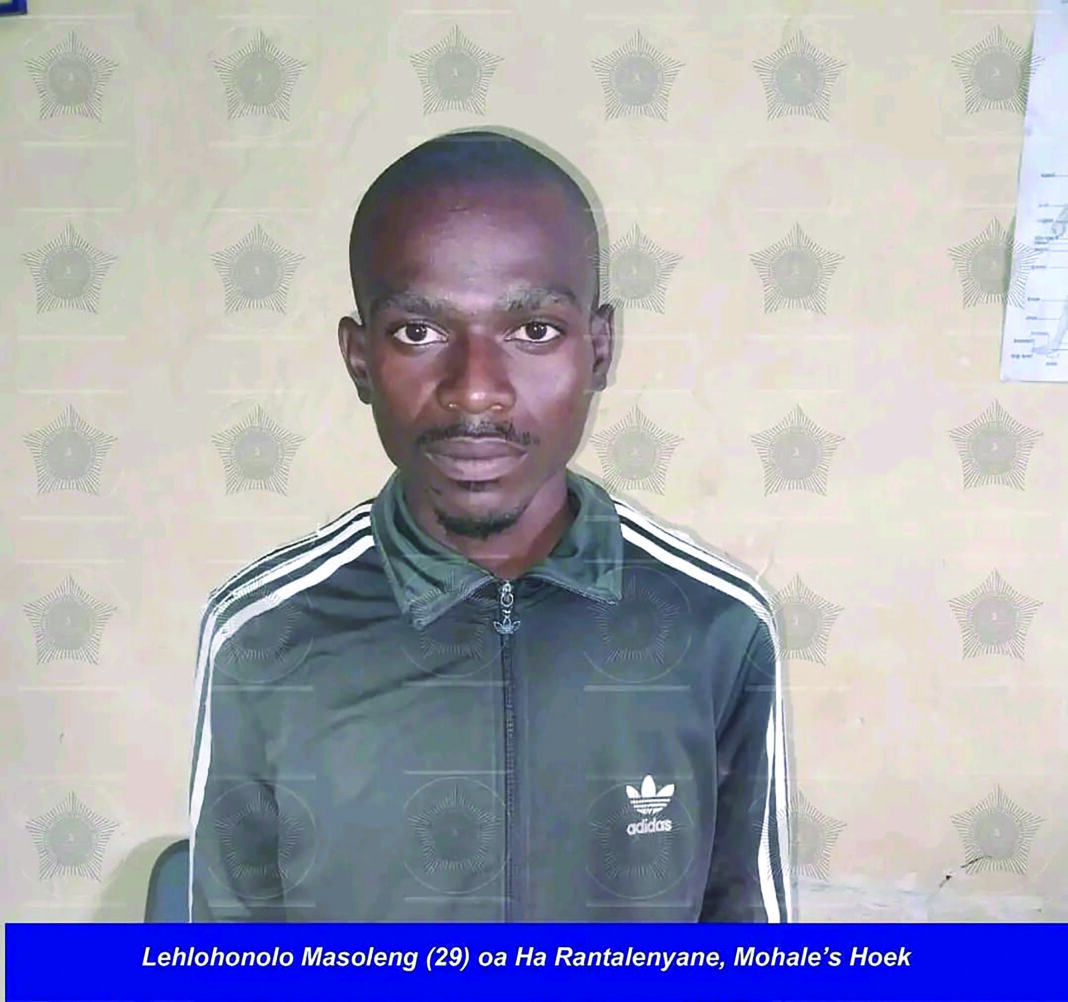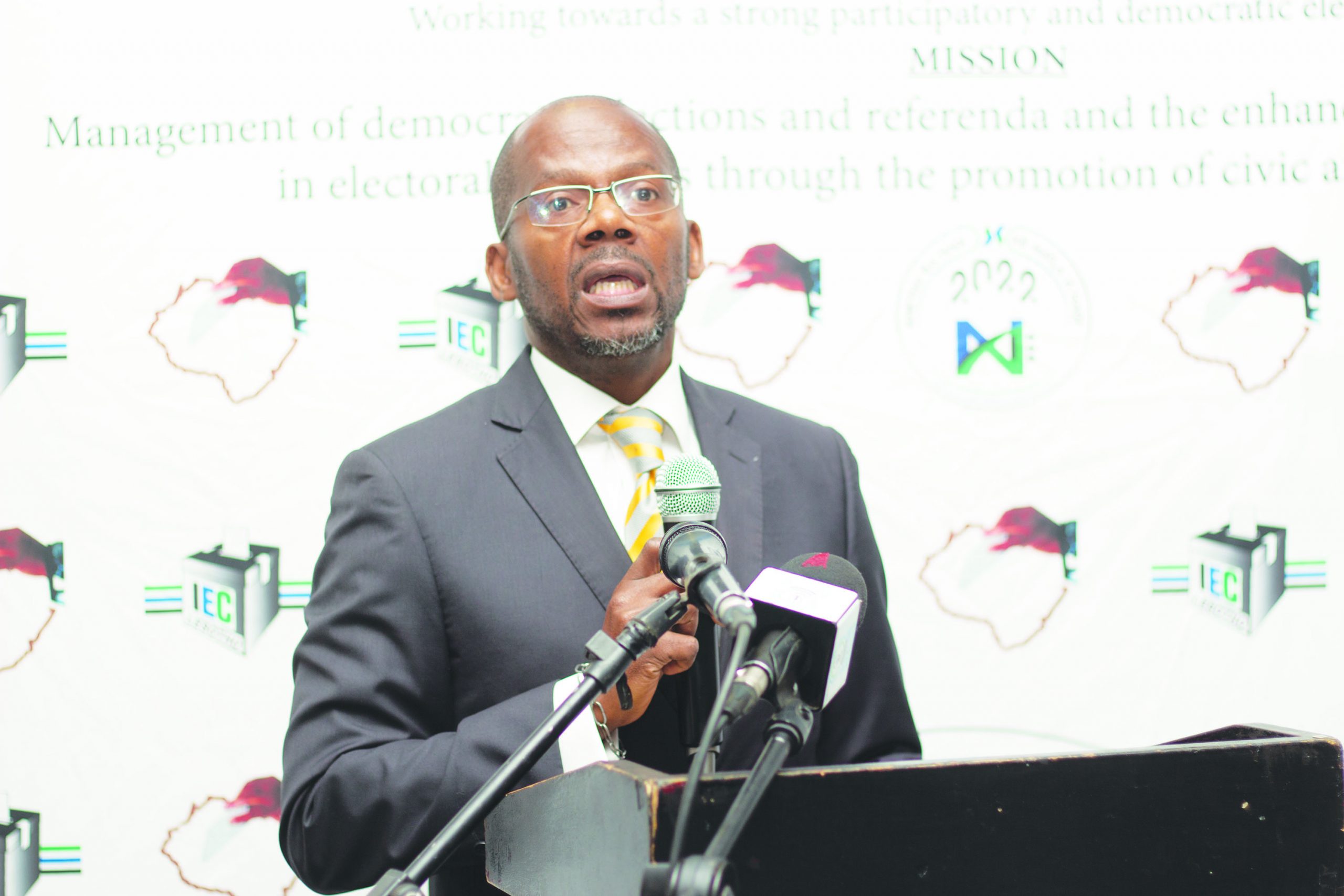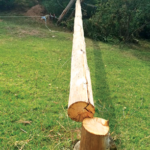Ntsoaki Motaung
On that fateful day in Mohale’s Hoek’s Ha Rantalenyane village, ‘Mantsepo Letsie awoke to a chorus of villagers shouting, “Sebonoang! Sebonoang!”
Curious, Letsie joined the throng, only to find herself hurrying towards the nearby fields along with the others.
Upon arrival, she encountered a scene of confusion and horror.
Before anyone could offer an explanation, she stumbled upon what appeared to be bones strewn across the ground. Assuming them to be animal remains, she reached out to pick one up, only to be abruptly halted by a fellow villager’s chilling revelation.
“Put that down, that is a human bone buried here it’s not animal bone,” someone exclaimed.
The shock of the realisation left Letsie reeling, her mind unable to comprehend the grim reality unfolding before her. Never before had she encountered death so intimately, and the haunting image of the deceased lingeres in her memory, indelibly etched for eternity.
Letsie recounted her harrowing experience during a recent public gathering organised by Member of Parliament (MP) Thabiso Lekitla.
The gathering, convened in Mekaling, Mohale’s Hoek, served as a platform for community leaders, law enforcement officials, and parliamentary members to address the concerns of the local residents and assuage their fears.
The grim discovery Letsie stumbled upon was revealed to be one of the four bodies of women suspected to have been murdered by Lehlohonolo Masoleng, a resident of Ha Rantalenyane, dating back to 2022.
In the wake of such disturbing revelations, Lekitla’s initiative aimed to foster dialogue and collaboration between the community and its leaders, encouraging a sense of unity and solidarity in confronting the challenges plaguing the area.
It served as a crucial step towards healing and justice for the victims and their families, while also reinforcing the community’s resolve to address such heinous crimes and ensure the safety and well-being of all its members.
According to Mohale’s Hoek District Police Commissioner (DISPOL), ‘Matholoana Tholoana, the tragic series of killings targeting women in Ha Rantalenyane, Mekaling constituency, commenced in 2022 with the discovery of the body of a young woman from Makhaleng Ha Sankatana.
Her lifeless form was found abandoned in the river next to the village, bearing signs indicative of a brutal stoning to death.
Tholoana recounted that towards the latter part of 2023 or early 2024, another grim discovery was made: the body of a young girl buried in the fields. The escalating frequency of such atrocities sparked heightened concern among law enforcement officials, particularly given Mohale’s Hoek’s atypical status as an area not known for such violence, but rather for incidents of sexual assault.
Describing the state in which the bodies were found as severely compromised, Tholoana explained the challenges encountered by police in their investigations. The condition of the bodies she said made it difficult to ascertain whether the victims had been subjected to sexual assault, inflicted with wounds, or had body parts removed prior to their demise.
“Through the assistance of our pathologist, however, we were able to determine that all the victims had met their untimely end in a similar manner,” Tholoana asserted.
In 2021, Lesotho shocked the world with its staggering murder rate, ranking sixth globally, as per the World Population Review. With a rate of 41.25 homicides per 100,000 people, nearly six times the global average of seven, the country found itself in a perilous position.
Surpassing conflict-ridden nations like the Democratic Republic of the Congo and Mozambique, Lesotho’s dire statistics highlighted a pressing issue within its borders. Even its populous neighbor, South Africa, shared the spotlight with 33.97 murders per 100,000 people, solidifying Lesotho’s prominence in a troubling list.
Following the apprehension of the suspect, Lehlohonolo Masoleng, he led the authorities to the location of the fourth victim.
Despite being in custody, Masoleng has remained reticent about his motives for the heinous acts, according to the DISPOL. However, during police interrogation, he disclosed that he made contact with his victims primarily through social media platforms, notably Facebook.
Tholoana revealed that Masoleng’s modus operandi involved targeting women between the ages of 17 to 45, enticing them with promises of financial rewards, employment opportunities, and romantic relationships, ultimately luring them into his sinister trap.
DISPOL specified that the victims hailed from various locations across Lesotho: the first woman was from Makhaleng, Ha Sankatana, the second from Ha Rankhelepe in Maseru, the third from Mapoteng in Berea, and the fourth from Nazareth in Maseru.
The profound impact of these horrific events on the community was palpable, as described by Letsie, who revealed the pervasive sense of fear and trauma that now permeates daily life in the village.
“I live alone, and I am still frightened, fearing for my safety and the possibility of becoming the next victim,” she confessed.
To cope with this pervasive anxiety, Letsie shared that she has adopted a routine of calling her relatives before bed and upon waking each morning to “let them, know I am still alive”.
The trauma inflicted upon the community by these brutal acts has left an indelible mark on its members, compelling Letsie to advocate for counseling services to support those grappling with the aftermath.
She emphasised the importance of providing mental health support to help individuals process their experiences and navigate the profound emotional toll of witnessing such violence.
She said they had seen things that they never thought they would in their entire lives.
Meanwhile, Lekitla acknowledged the profound trauma experienced by community members and stressed the importance of providing support to help them return to their normal lives.
He pledged to personally visit the families of the murdered women, whose bodies were discovered in various locations throughout Ha Rantalenyane.
Additionally, Lekitla announced that he had convened community leaders to engage with residents and offer reassurance during this challenging time.
Deputy Speaker of the National Assembly, Tšepang ‘Matlhohonolofatso Tšita-Mosena, herself a woman, emphasised the legislative efforts underway to enhance the safety of women.
Tšita-Mosena, highlighted the forthcoming Bail Bill 2024 as a crucial measure intended to deter perpetrators from committing crimes by instilling fear of repercussions. She also cited the recent passage of the Counter Domestic Violence Act and urged community members to familiarise themselves with these laws.
“There is the Counter Domestic Violence Act has been passed and there is another law meant to address crimes committed through technology, go and familiarise yourselves with these laws,” she said.
Addressing parents directly, Tšita-Mosena implored them to nurture their children with love, emphasising that neglect could drive them to seek validation and affection in perilous environments.
Similarly, she urged women to empower themselves economically, cautioning that financial dependence could render them vulnerable to exploitation and violence.
According to a publication by the Lesotho Mounted Police Service (LMPS) on April 5, 2024, authorities received a crucial tip-off in February from the Ha Rantalenyane community, alerting them to the presence of a buried body.
Subsequent investigations revealed that the victim, a 36-year-old woman, hailed from Rankhelepe, Maseru.
Shortly thereafter, on March 19, according to the police report, another grim discovery was made when the body of a 39-year-old woman, identified as a resident of Mapoteng, Berea, was found buried.
Following intensive investigations, police traced the evidence back to Masoleng who reportedly directed the police to yet another victim.
The police report further detailed the discovery of another victim, a 41-year-old woman from Nazareth, Maseru, suspected to be a traditional healer.
Masoleng was subsequently brought before the magistrate court of Mohale’s Hoek on April 12, 2024, to face charges related to these heinous crimes.
Summary
- The grim discovery Letsie stumbled upon was revealed to be one of the four bodies of women suspected to have been murdered by Lehlohonolo Masoleng, a resident of Ha Rantalenyane, dating back to 2022.
- In the wake of such disturbing revelations, Lekitla’s initiative aimed to foster dialogue and collaboration between the community and its leaders, encouraging a sense of unity and solidarity in confronting the challenges plaguing the area.
- According to Mohale’s Hoek District Police Commissioner (DISPOL), ‘Matholoana Tholoana, the tragic series of killings targeting women in Ha Rantalenyane, Mekaling constituency, commenced in 2022 with the discovery of the body of a young woman from Makhaleng Ha Sankatana.

Your Trusted Source for News and Insights in Lesotho!
At Newsday Media, we are passionate about delivering accurate, timely, and engaging news and multimedia content to our diverse audience. Founded with the vision of revolutionizing the media landscape in Lesotho, we have grown into a leading hybrid media company that blends traditional journalism with innovative digital platforms.










